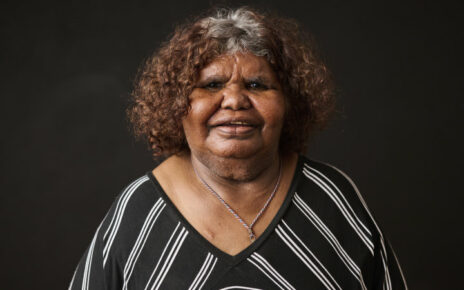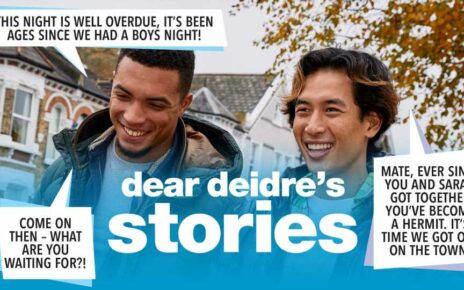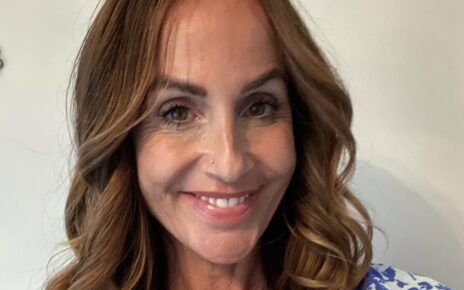Save articles for later
Add articles to your saved list and come back to them any time.
A prominent architect of the Indigenous Voice to parliament proposal has rebuked conservative political leaders and No campaign advocates for peddling “myths and misinformation” about the looming referendum.
Senior Australian of the Year and Voice co-architect Tom Calma said misinformation and disinformation had infected much of the public debate surrounding the Indigenous Voice and often came from people who were ill-informed or had malicious intent.
Indigenous leader Professor Tom Calma.Credit: Rohan Thomson
In January, after being named Senior Australian of the Year, Calma used his acceptance speech to warn of “pundits who are ill-informed or have malicious intent regarding the Voice” targeting senior Australians. Calma said he now felt his concerns had been realised.
“Misinformation and disinformation has been exponentially exploited especially by conservative political leaders at the national level conservative media, and No campaign advocates,” Calma says in a speech to be delivered on Wednesday and provided to this masthead.
“While we have many older Australians who have negative or ill-informed attitudes of Aboriginal and Torres Strait Islander Peoples because they were denied a balanced history education, I am confident this will not be the case for future generations.”
He urged Australians to focus on the facts about the Voice and to disregard opinions and “extreme hypotheticals”, instead pointing to the report he co-authored on its potential design to learn more about the detail.
Calma’s intervention comes ahead of Prime Minister Anthony Albanese’s announcement on Wednesday of the date of the referendum ballot. With the date for the vote expected in early to mid-October, both the Yes and No campaigns will ramp up their efforts to persuade Australians.
Calma’s Anna McPhee Oration in Melbourne takes on what he says are false claims and misconceptions about the Indigenous Voice and advocates for greater inclusion of First Nations cultures and perspectives in education curricula to help to “build peaceful and respectful relations between Australia’s many cultures”.
Calma says that disinformation and ignorance can be countered by people “having conversations with families, friends, colleagues and through writing to politicians and newspapers”.
Last week, the First People’s Assembly of Victoria raised its concerns about the frequency and extent of racist abuse targeting its posts on social media platform Facebook following the launch of the No campaign.
In laying out a case for the Voice, Calma also pointed to the five different bodies established and then abolished under different governments over the past 50 years as evidence of a long-standing desire from Indigenous Australians to have a direct say in policies that affected them.
“All have been established by one political party and abolished or starved of funding by another,” he said.
Albanese on Tuesday said he felt positive about the referendum’s chances as he spoke in Adelaide before Wednesday’s launch, predicting most Australians would tune into the Voice debate in the weeks before the day of the vote.
The prime minister said he believed a majority of Australians would vote Yes if they read the wording of the constitutional amendment, which he emphasised was simple, positive, and had no downside.
“Consulting people is good manners, that’s what this referendum is about,” he said.
Albanese anticipated voters would not vote along party lines and noted his government would continue to focus on other issues as it campaigned in favour of the referendum.
The date of the referendum – widely expected to be October 14 – will be announced in the working-class Adelaide suburb of Elizabeth as part of a push to sway outer suburban voters in the swing state.
Senior cabinet ministers will join Albanese, SA Premier Peter Malinauskas and an expected 400 supporters at the launch.
The Yes campaign will also seek to display a sense of momentum across the country, with minister Bill Shorten and Greens leader Adam Bandt speaking to rail commuters in Melbourne, and Labor’s Tanya Plibersek campaigning with former prime minister Malcolm Turnbull.
Indigenous Affairs Minister Linda Burney said: “By voting yes to listening, and voting yes to better outcomes, Australia has nothing to lose and everything to gain.”
Cut through the noise of federal politics with news, views and expert analysis from Jacqueline Maley. Subscribers can sign up to our weekly Inside Politics newsletter here.
Most Viewed in Politics
From our partners
Source: Read Full Article



